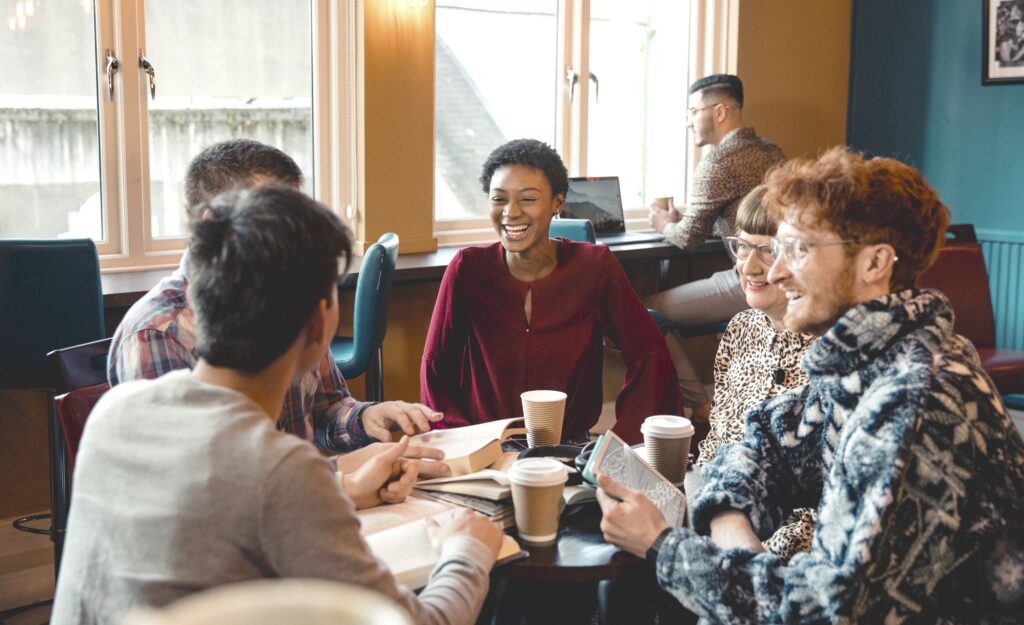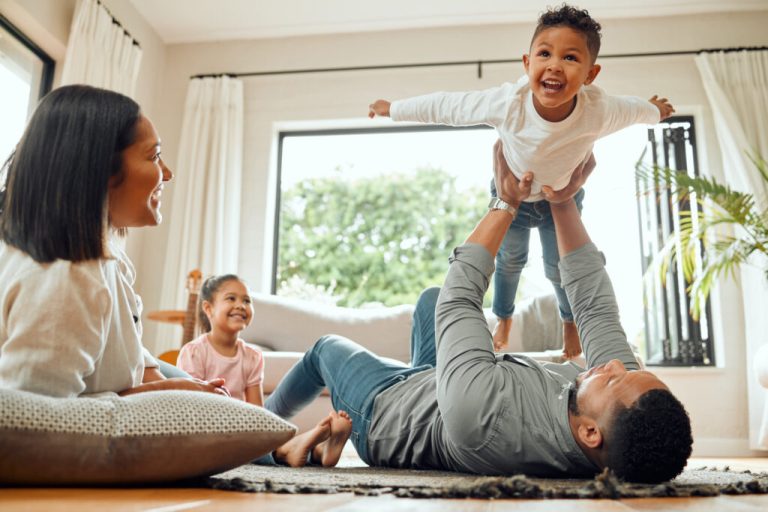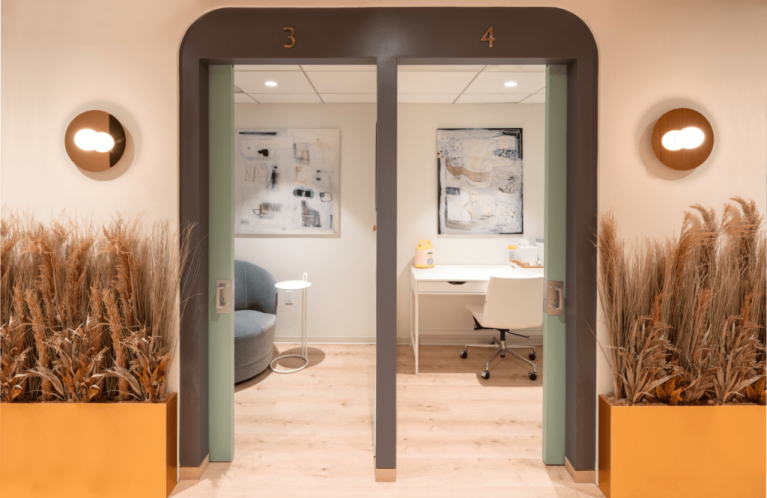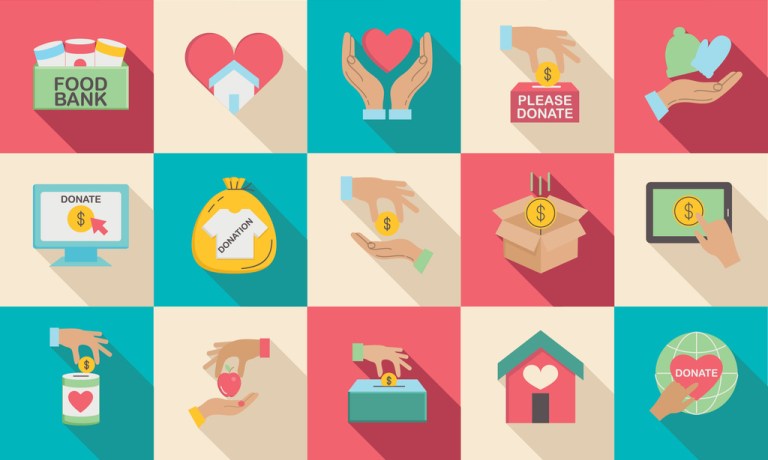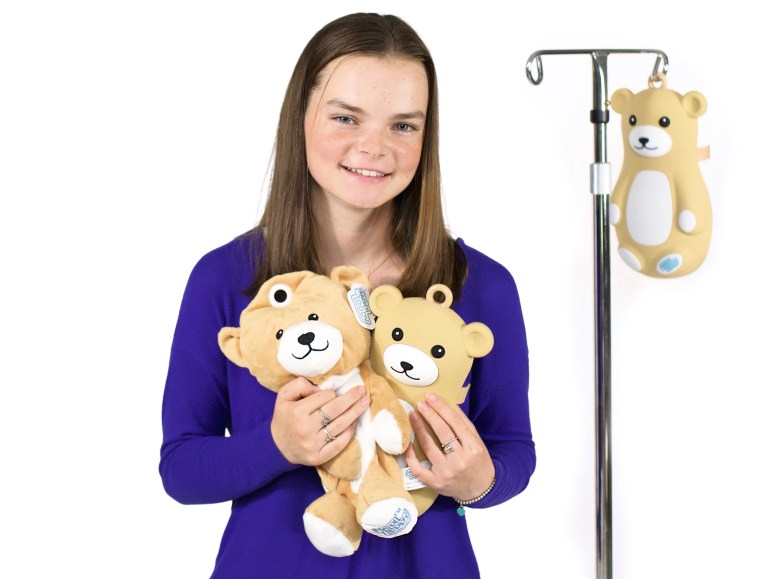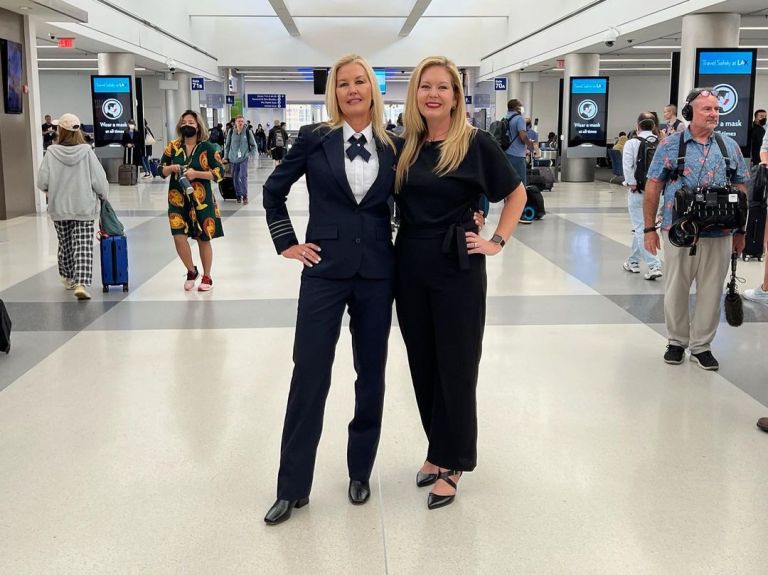Alexandra Shelly contributed to this article
With the rise in remote work and amid an ongoing loneliness epidemic, community feels more important and more elusive than ever. If we’re lucky, we feel a sense of belonging at home, among the people we love. And if we’re even luckier, we experience some degree of camaraderie at work as well. But these two places alone can’t always provide the level of nourishment our social selves need.
Enter: the third place. Separate from home (the first place) and work (the second place), third places provide us the opportunity to connect with and meet new people, receive support, and tether into our personal identities. And they offer a wealth of benefits for our mental and emotional health. Read on to learn more about the concept and how to establish your own third place.
What Is a Third Place?
In the 1989 book The Great Good Place, sociologist Ray Oldenburg described third places as informal and accessible public settings that promote conversation and relaxation — like parks, coffee shops, hair salons, gyms, libraries, churches, and even virtual spaces.
“Third places play an important role in our lives by offering a break from the demands of work-home life,” psychologist Elena Touroni explained to Verywell Mind. “They help us maintain a healthy work-life balance, providing spaces where we can relax, enjoy ourselves, and engage with different types of people.”
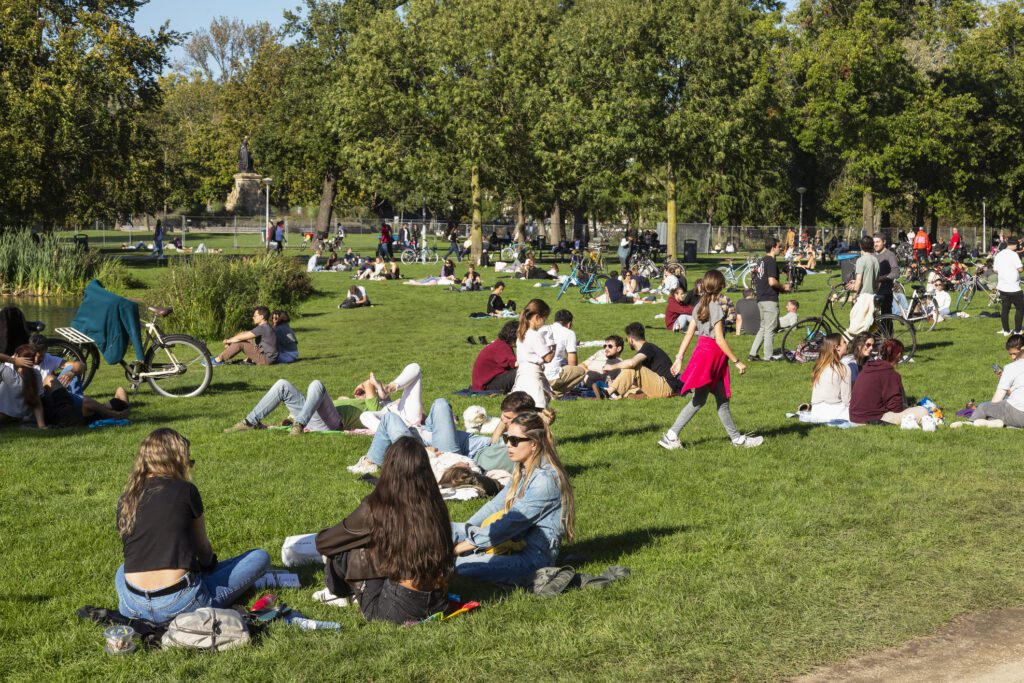
The last item on that list — people — is key. “One of the important features of ‘third places’ is social contact, either directly or indirectly,” Narae Lee, a postdoctoral scholar at the Population Research Institute of The Pennsylvania State University, told Today in 2023. “In third places, you can enjoy direct social interaction with other people by chatting and enjoying activities with them.” She added that “just being around or being surrounded by other people who have similar interests” can facilitate indirect social interaction as well.
Additionally, third places are ideally low-cost or free, easily accessible, and do not mandate attendance. Overall, there’s something touching about the reason we go to a third place — it’s singular and collective all at once. We gather for a unified reason, yet everyone holds their own meaning. Plus, isn’t there something just lightly romantic about being able to say, “you know where to find me”?
Why Third Places Are Important
They’re Psychologically and Emotionally Restorative
At a third place, there are no reports to turn in by EOD or a refrigerator to-do list bearing down on you. You get to just be, enjoying a choose-your-adventure level of engagement. Third places promote relaxation, creativity, and alleviate stress, while providing the benefits that come from being around others.
“Being part of a community and feeling connected is essential for good mental health,” Touroni told Verywell Mind. “It reduces feelings of loneliness, boosts our mood, and can even increase our self-esteem.”
And feeling connected doesn’t necessarily require you to go out and make a bevy of new best friends. A 2007 study found that employees at commercial third places, like coffee shops and bars, can provide emotional support and companionship to customers. Other research backs that up, with one 2014 study finding that “even social interactions with the more peripheral members of our social networks contribute to our well-being.”
They Foster Personal Development
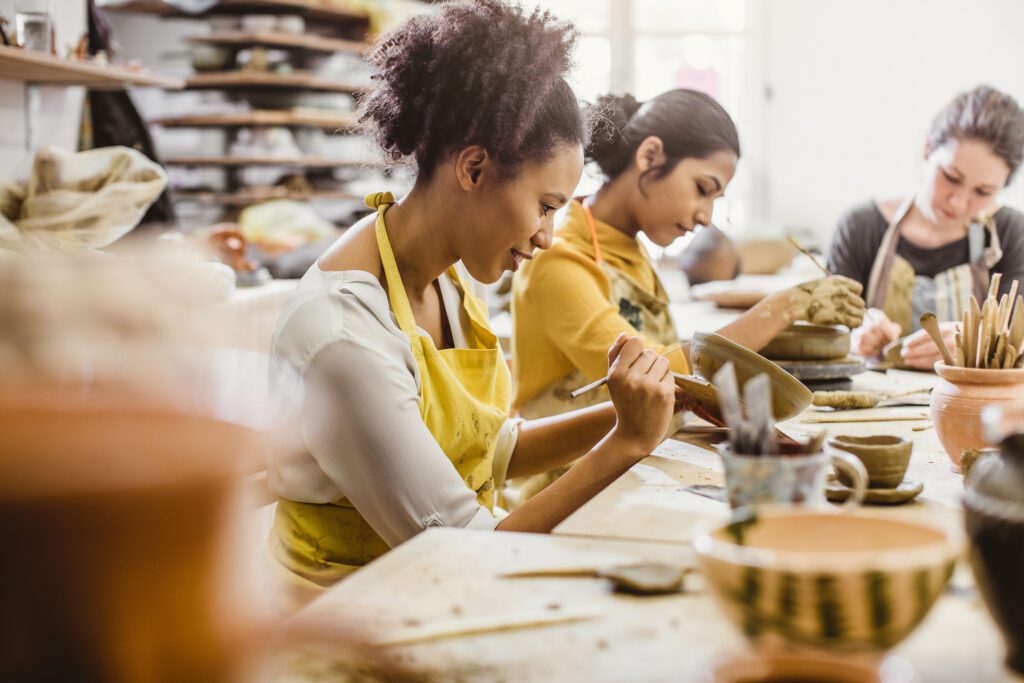
Third places are often stomping grounds for recreational activities, like playing tennis in the park or learning to paint in a community art class. They’re chances to discover more about who you are and what you enjoy doing. Depending on how packed your day-to-day is, it may feel overwhelming to try to add in an extracurricular, but making room to explore your interests and cultivate new hobbies is critical for well-being.
They Encourage Collaboration and Togetherness
Being public settings, most third places are, by their very nature, melting pots. This especially applies to cafes, parks, and libraries, where people are brought together based sheerly on proximity rather than mutual backgrounds or ideology. That means these spaces offer a unique opportunity for you to learn about and interact with people who are different from yourself.
“Studies have shown that just having a diversity of folks in your life … more informal and infrequent and unplanned, can be really protective for health and well-being,” Jessica Finlay, an assistant professor in the Institute of Behavioral Science and the department of geography at the University of Colorado Boulder, told Vox.
Conversely, some third places lend themselves to specific interests or experiences. They enable you to build relationships based on commonalities, helping you to cultivate a shared sense of belonging. These can include online forums, which are particularly beneficial for people living in rural communities or those who have limited mobility or time.
How to Find a Third Place
Begin by brainstorming what’s important to you: What do you value, what would you like to prioritize more, what’s a hobby you’ve meaning to pick up? Other important factors may include location or cost — if that hip bar by your house is going to break your wallet, it may not be the best place to turn into your own personal Cheers. Narrowing this down, you’ll draw closer to what your third place(s) can be.
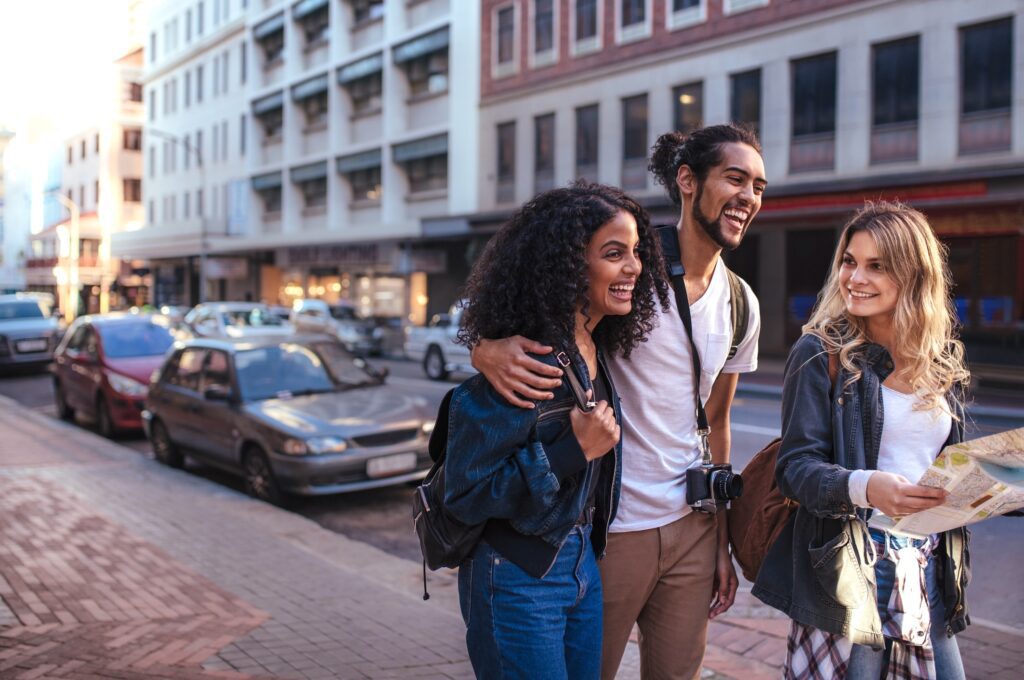
Now start making a list of nearby spots. You can get ideas by utilizing search engines or apps like Yelp, via social media, through friends, or by exploring your area by foot. You may be surprised by what’s around you that you forgot about or never realized was there in the first place.
Importantly, remember to allow yourself grace when it comes to forming new relationships at a third place. It might take time and perhaps be a bit bumpier than you’d prefer.
“Socializing is a learned skill, but the last time we learned it we were probably little kids,” Kathy Giuffre, a professor at Colorado College who studies third places, told The Atlantic in 2022. “So be kind to yourself, because you might be out of practice.”
May your third place provide the belonging you’ve been looking for, or the belonging you’ve needed to return to.
